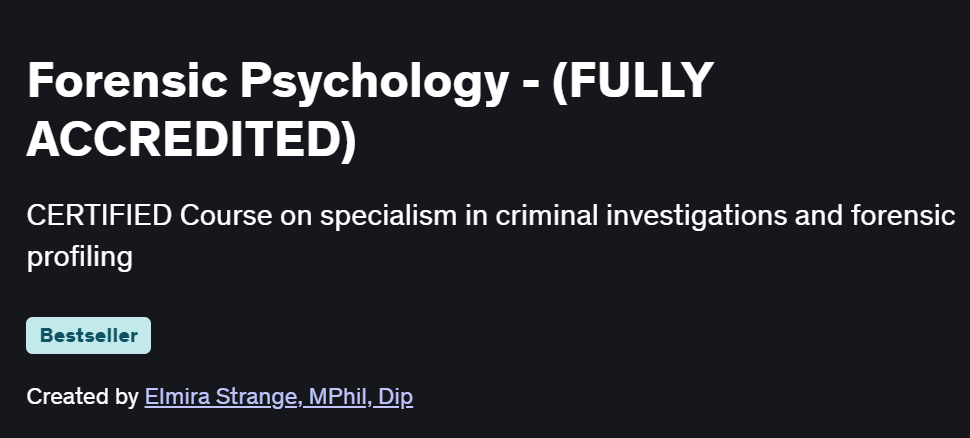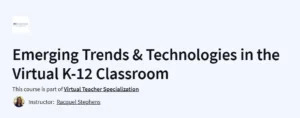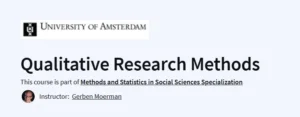What will you in Forensic Psychology Course
- Learn the relationship between psychology and the criminal justice system.
- Understand the role of psychologists in legal contexts, including criminal investigations and court proceedings.
- Explore how psychological assessments are used in forensic settings, including risk assessments and evaluations of mental state.
- Analyze the psychology behind criminal behavior, including profiling, motivations, and patterns.
- Study the contribution of forensic psychologists in both civil and criminal cases.
- Gain knowledge of how mental illness intersects with legal processes, including competency evaluations and insanity defenses.
Program Overview
Introduction to Forensic Psychology
⏳ 30 minutes
Overview of forensic psychology and its importance in the criminal justice system.
Introduction to psychological evaluations and their role in the legal process.
Criminal Behavior and Profiling
⏳ 1 hour
Understanding the psychological theories behind criminal behavior.
Introduction to criminal profiling methods used in forensic psychology.
Psychological Assessments in Forensics
⏳ 1 hour
Techniques used for mental health assessments in criminal cases.
The role of forensic psychologists in evaluating offenders and victims.
The Legal Process and Psychologists’ Role
⏳ 1 hour
How forensic psychologists contribute to the legal process, including expert testimony.
Understanding the intersection of psychology and law in criminal justice.
Mental Illness and Legal Defenses
⏳ 1 hour
Explore how mental illness is used in criminal defenses, including competency and insanity claims.
The role of forensic psychologists in determining the validity of these claims.
Case Studies and Application
⏳ 1 hour
In-depth review of real-world case studies in forensic psychology.
Analysis of practical application in legal settings.
Get certificate
Job Outlook
Career Opportunities: Forensic psychologists can work in a variety of settings, including law enforcement agencies, correctional institutions, and as expert witnesses in court.
Specializations: Opportunities exist in criminal behavior analysis, criminal investigations, and assessments of defendants’ mental fitness.
Demand: As crime rates fluctuate and criminal justice reform continues, the demand for forensic psychologists is projected to grow steadily.
Specification: Forensic Psychology – (FULLY ACCREDITED)
|
FAQs
- No prior psychology knowledge is strictly required.
- Basic familiarity with human behavior and social sciences helps.
- Beginners can follow along with foundational concepts.
- Supplemental reading may enhance understanding of advanced topics.
- Hands-on case studies reinforce theoretical knowledge.
- Understand criminal profiling and psychological motivations.
- Learn assessment techniques used in legal contexts.
- Knowledge applicable for law enforcement and correctional roles.
- Explore mental illness evaluation in legal defenses.
- Prepares learners for roles as expert witnesses or consultants.
- Self-paced learning allows flexible scheduling.
- Modules are short (30–60 minutes each) and manageable.
- Hands-on exercises and case studies can be completed incrementally.
- Lifetime access enables revisiting content anytime.
- Suitable for professionals seeking knowledge enhancement.
- Study psychological assessments of offenders and victims.
- Learn competency and insanity evaluations in legal contexts.
- Explore profiling methods and criminal behavior patterns.
- Analyze civil and criminal case applications.
- Gain insight into expert testimony and court procedures.
- Certificate of completion awarded after finishing all modules.
- Recognized as fully accredited by the course platform.
- Shareable on LinkedIn and professional networks.
- Demonstrates practical understanding of forensic psychology.
- Enhances employability in legal, law enforcement, and counseling fields.





